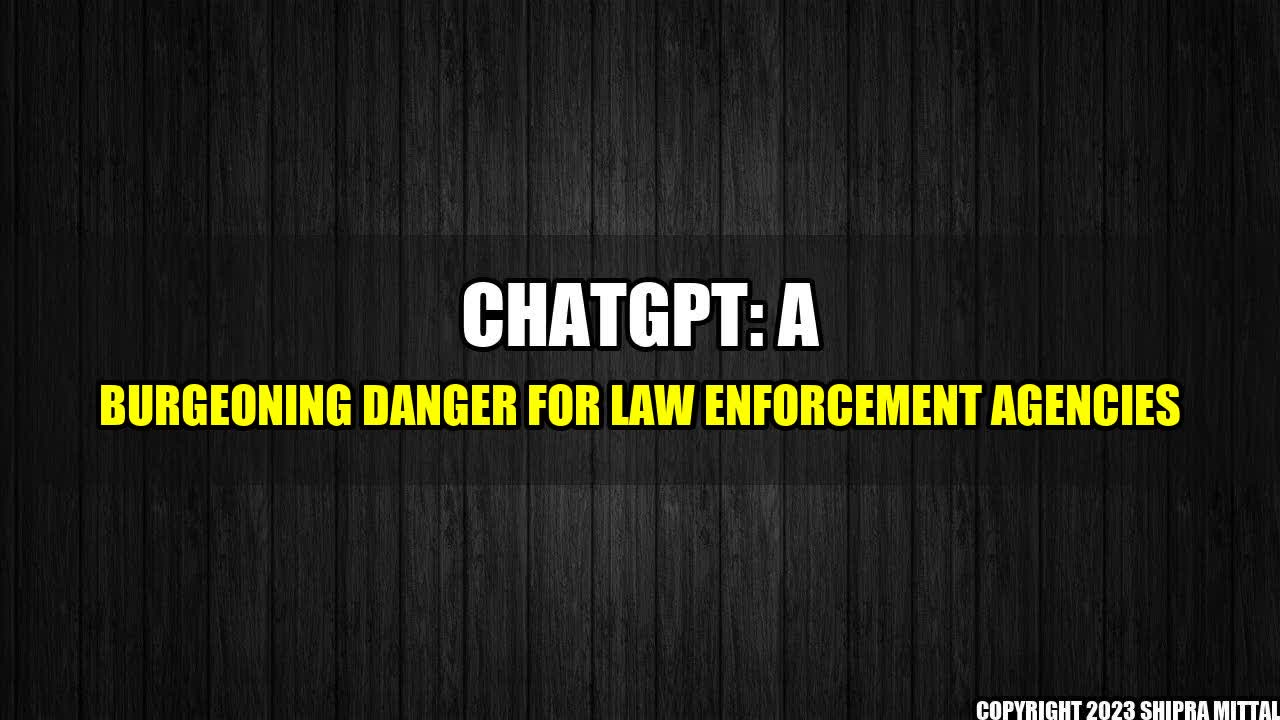Imagine you're scrolling through your social media feed and a chatbot pops up, asking if you want to chat. You type in "Hello" and before you know it, you're having a conversation with an AI-powered bot called ChatGPT. The chat is eerily realistic and soon, you're divulging information about your personal life and habits.
Now imagine that instead of being a harmless chatbot, ChatGPT is actually a tool being used by criminals to gather information about potential victims. This is the concern that law enforcement agencies around the world are grappling with today.
According to Europol, the European Union's law enforcement agency, criminals may soon start exploiting ChatGPT to commit cybercrime. ChatGPT works by completing text prompts given to it by users, and the responses are generated by machine learning algorithms that are trained on giant datasets. This means that ChatGPT can learn to mimic human conversation patterns and produce responses that are difficult to distinguish from those made by an actual person.
The potential for misuse of such technology is immense. Criminals could use ChatGPT to create convincing phishing scams, extract personal data or even generate fraudulent chat logs that could be used as evidence in court cases.
Real-life examples of such misuse already exist. The website OpenAI, which developed the original version of ChatGPT, had to withhold the release of its latest version due to concerns that it could be abused by bad actors. In another instance, a spam campaign was reportedly launched in which a bot pretending to be a customer service representative of a well-known brand started sending out phishing emails to unsuspecting victims.
Companies like Facebook and Microsoft have already started using chatbots like ChatGPT as part of their customer service offerings. However, they are also aware of the potential dangers of such technology and are taking measures to mitigate them.
Europol has urged other companies that use or are planning to use such chatbots to be vigilant and take proactive measures to prevent their misuse by criminals. As for law enforcement agencies, they may need to start looking at new ways of detecting and preventing the use of AI-powered chatbots in cybercrime.
Summary
- ChatGPT is an AI-powered chatbot that can mimic human conversation patterns and is at risk of being exploited by criminals.
- Real-life examples of such misuse already exist, and companies using chatbots are taking steps to mitigate the danger.
- Law enforcement agencies may need to start looking at new ways of detecting and preventing the use of AI-powered chatbots in cybercrime.
References and Further Readings
- Europol is worried criminals may exploit the powers of ChatGPT - Here's how
- Better Language Models and Their Implications
- Microsoft's AI Chatbot Zo is Now Available in the U.S. - Here's How to Try It Out
Hashtags
- #ChatGPT
- #Europol
- #AI
- #chatbot
- #cybercrime
Category
Cybersecurity

Akash Mittal Tech Article
Share on Twitter Share on LinkedIn